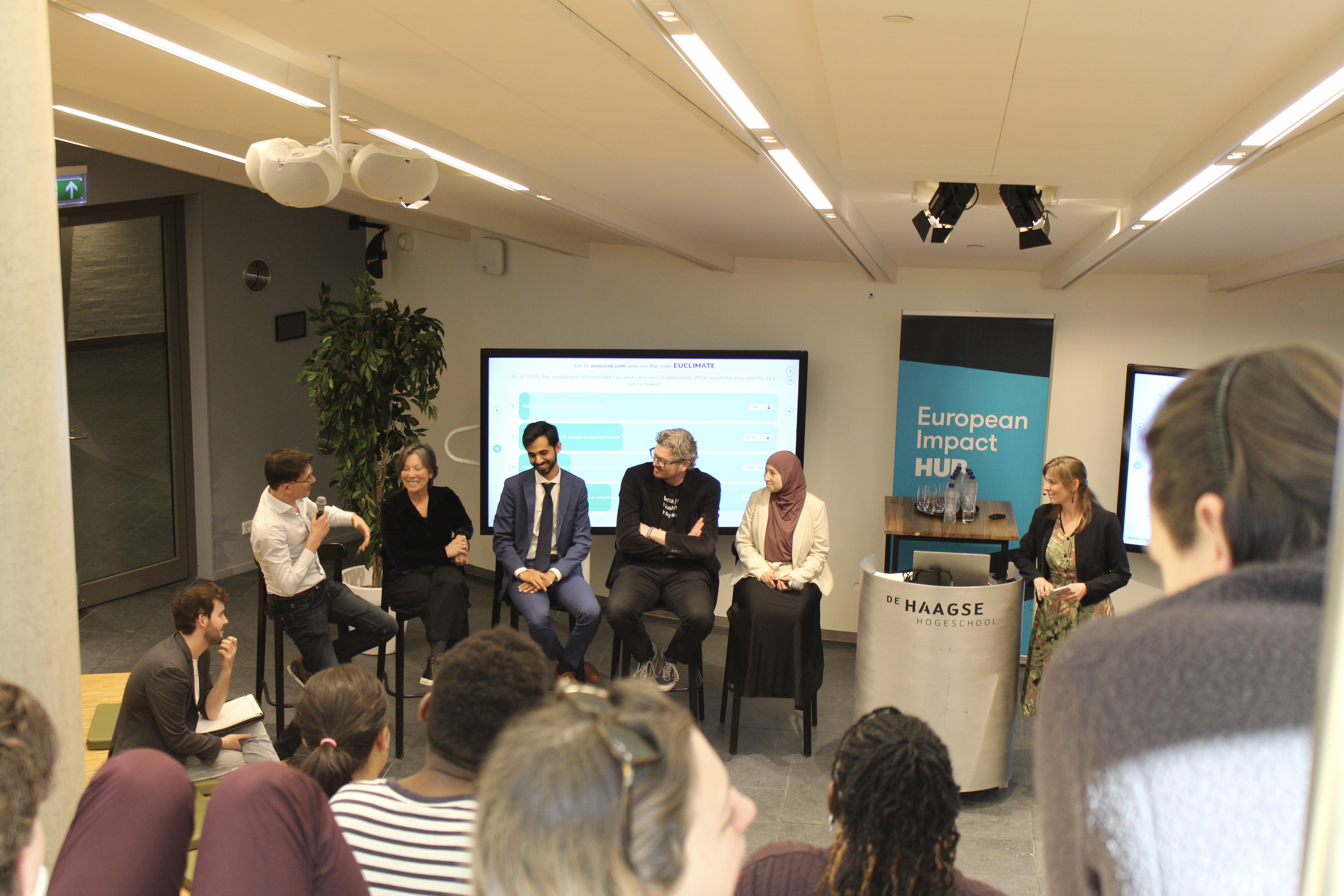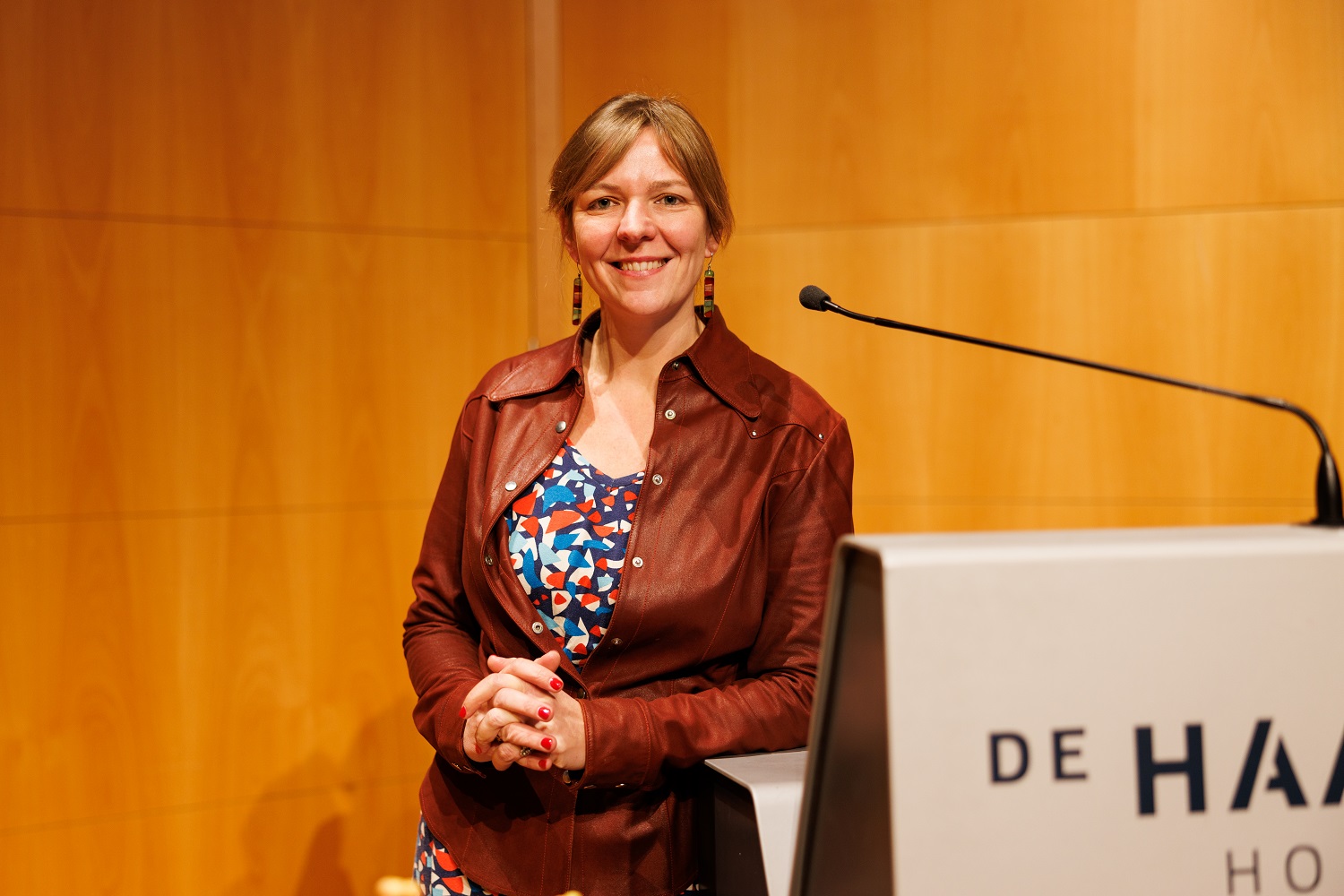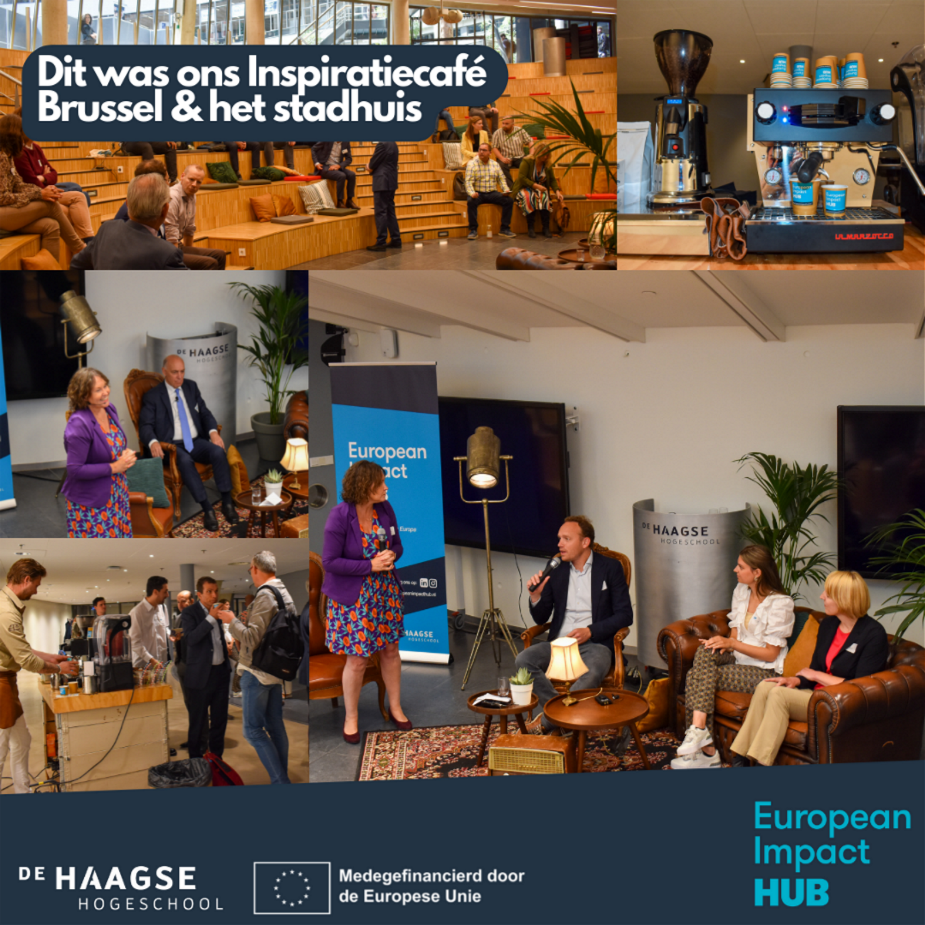Changing Role of Europe

Introduction
Working with Europe is a profession. Research group “Changing Role of Europe” conducts research on the practical aspects of European work, helping to train a new generation of European professionals.
About the research group
What does European work look like in practice? The researchers of “Changing Role of Europe” deal with relevant issues related to European cooperation at regional, national, and global levels.
The research group started the European Impact initiative, which brings about various types of activities. European Impact offers concrete, practice-oriented knowledge products for organizations and their (future) professionals. The team integrates knowledge from the fields of European studies, public administration, business administration, political science, communication and (international) law. Lecturers, students, and staff at The Hague University of Applied Sciences are invited to develop and share European knowledge in the research group.

About the professor
dr. Mendeltje van Keulen
Dr. Mendeltje van Keulen leads the research group “Changing Role of Europe”. She researches the European policies of organizations, professionals, and the role of regions in regard to EU advocacy. Mendeltje is a passionate public administration expert with the ambition to use the research group as a way to connect the European field with higher education and academia.
Mendeltje achieved a PhD in European Public Administration and completed a Master's degree at the College of Europe in Bruges. Her dissertation (“Going Europe or Going Dutch,” 2006) examined the conditions for effective European advocacy by the Dutch government in the field of natural gas and biotechnology. She worked from 1998 to 2009 as (senior) research fellow for the Netherlands Institute for International Relations “Clingendael” and was seconded as researcher to the Scientific Council for Government Policy. As registrar and head of EU staff at the Dutch House of Representatives (2009-2018), she gained practical experience in Europeanization processes and change management. In recent years she has been EU-researcher for the Policy and Operations Evaluation Department of the Dutch Ministry of Foreign Affairs. Currently she is a member of the EU-committee of the Dutch Advisory Council for International affairs.
+31(06) - 39 76 53 21
m.vankeulen@hhs.nl
LinkedIn profile
Mastering the European profession



